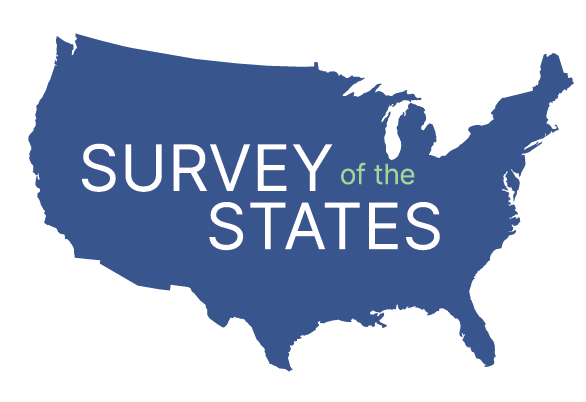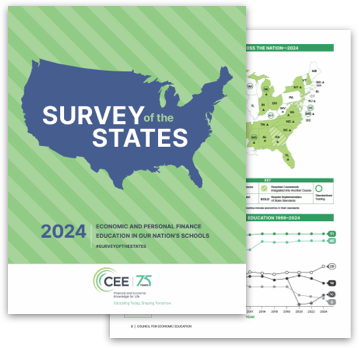2024 Survey of the States

Every two years, the Council for Economic Education (CEE) conducts a comprehensive look into the state of K–12 economic and financial education in the United States, collecting data from all 50 states and the District of Columbia. The biennial Survey of the States serves as an important benchmark for progress in K–12 economic and financial education, revealing both how far we’ve come as a country—and how far we still have to go.
The Survey of the States is critical for our understanding of where resources are most needed, in terms of outreach and advocacy.
Status of Economic & Personal Finance Education Across the Nation
- Personal Finance Education
- Economic Education

Download the 2024 Survey of States
Economics is about choices, about costs and opportunities. Teaching our students the basics of economics and personal finance helps them make more thoughtful choices. The more individuals who make better choices, the greater the probability that we will have a resilient economy and a more effective political system.
Robert Rubin, Former United States Secretary of the Treasury
It’s been a banner two years for young people’s financial knowledge and futures. Requiring all high schools to teach principles of personal finance and economics and all students to study it builds equity, knowledge and possibility. Putting life-essential financial knowledge into the hands of more and more kids is cause for celebration.”
Nan J. Morrison, CEE President and CEO
It was obvious to many that in recent years younger generations have been struggling more and more to properly handle their personal finances, and the need for such a course was increasing.
Indiana Senator Mike Gaskill (R-25)
Requiring a financial literacy course here in Pennsylvania will empower our youth and give them the skills to accomplish their personal life goals. This new graduation requirement is an investment in the Commonwealth’s financial future.
Pennsylvania Senator Chris Gebhard (R-48)
Looking at programs in 33 countries, spanning 6 continents and more than 160,000 individuals, we have found that financial education works and works effectively.